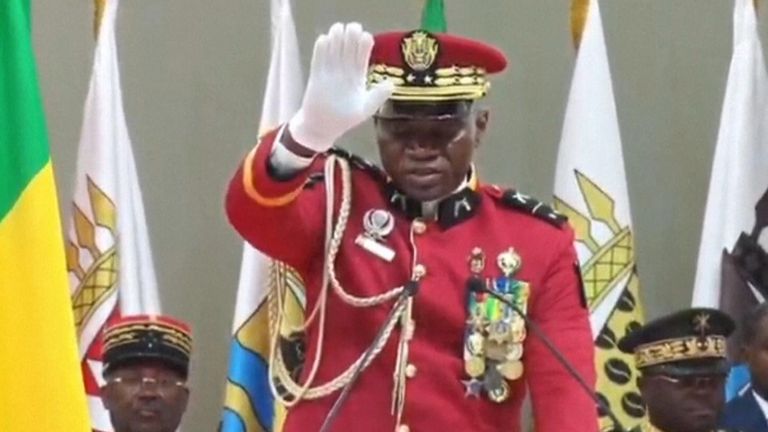Gabon’s recent change in leadership saw General Brice Clotaire Oligui Nguema sworn in as the head of state, succeeding the long-standing rule of the Bongo family. The inauguration took place in the presidential palace in Libreville, with a diverse audience, including government officials, military figures, and local leaders.
General Oligui, a cousin of the ousted President Ali Bongo Ondimba, formerly served as a bodyguard to his late father and headed the elite republican guard military unit. He addressed the crowd with a promise to organize free, transparent, and credible elections, emphasizing the peaceful nature of the transition.
The military’s swift takeover, which occurred without violence, came after concerns about the previous president’s leadership, including a controversial election. While celebrated by some in Gabon, the coup faced criticism from the African Union and the international community.
The rapid swearing-in of General Oligui aims to establish a sense of legitimacy and consolidate his authority, potentially dissuading opposition. However, his plans to amend the constitution and electoral code suggest a lengthy transition period.
The former president, Ali Bongo Ondimba, had ruled for 14 years and faced widespread dissatisfaction with his family’s extended rule. Gabon’s opposition candidate, Albert Ondo Ossa, who secured 30 percent of the votes in the disputed election, expressed disappointment with the change in leadership.
Gabon, a former French colony and an OPEC member, relies on oil revenue, but wealth distribution remains unequal. The country faced economic challenges, with a significant percentage of youth unemployment and oil export revenue of $6 billion in 2022, according to the United States’ Energy Information Administration.

























